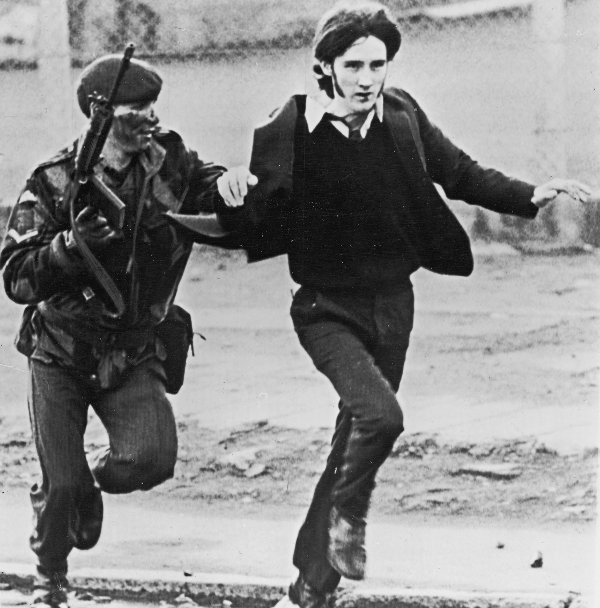FORMER soldiers accused of giving false evidence to the Bloody Sunday Inquiry will not face prosecution over the claims the Public Prosecution Service (PPS) has confirmed.
Thirteen people were shot dead when soldiers opened fire on marchers during a civil rights march in Derry on January 30, 1972.
The report of an inquiry into the massacre, led by Lord Saville and published in 2010, claimed 15 soldiers had knowingly put forward false accounts.
Northern Ireland’s PPS has now said these soldiers will not face any charges over these claims as there is "insufficient" evidence.
The same applies to an alleged former member of the IRA.
“All decisions on whether or not to prosecute are taken by independently and impartially applying the Test for Prosecution,” PPS Senior Public Prosecutor John O’Neill said in a statement issued on April 19.
“The standard of proof needed for a criminal prosecution is high,” he explained.
“For a conviction, the prosecution must establish beyond a reasonable doubt, through available and admissible evidence, the commission of a criminal offence by the suspect.
“After careful consideration, it has been concluded that the available evidence in this case is insufficient to provide a reasonable prospect of obtaining a conviction of any suspect for offences in relation to the giving of false evidence.”
He added: “The decision making involved the consideration of a vast amount of material.
“Consideration of the allegations of false evidence presented particularly complex evidential and legal issues, all of which were thoroughly analysed by the prosecution team.”
 Thirteen people were killed and 15 wounded on Bloody Sunday in Derry on January 30, 1972
Thirteen people were killed and 15 wounded on Bloody Sunday in Derry on January 30, 1972Mr O’Neill went on to cite three “particular issues” which arose for his team.
“Firstly, although the Bloody Sunday Inquiry may have rejected the evidence of individuals, it did not always express those findings in terms amounting to the criminal standard of proof,” he said, adding: “That is the standard which the PPS must consider.”
He continued: “Secondly, many of the findings related to the rejection of accounts given by former soldiers in 1972.
“The PPS has concluded that, for a number of legal reasons, those accounts from 1972 would not be admissible in criminal proceedings today.
“Thirdly, the full amount of evidence upon which the Bloody Sunday Inquiry based its findings is not generally available to the prosecution today.
“Issues arise in respect of the admissibility of evidence and its availability, since not all witnesses who provided evidence to the Inquiry provided witness statements to the PSNI.”
Mr O’Neill went on to claim “these decisions not to prosecute in no way undermine the findings of the Bloody Sunday Inquiry that those killed or injured were not posing a threat to any of the soldiers”.
He said: “We acknowledge that these prosecutorial decisions will be disappointing to the victims and families involved, and that this may be another difficult day for them. We have written to them to explain in detail the reasons for the decisions. We would like to provide assurance that these decisions were taken impartially, independently and only after the most thorough and careful consideration of all available evidence and the relevant legal issues.”
The PPS decision has been branded a “further blow” to the families of the Bloody Sunday victims who have campaigned for decades to get justice for their loved ones.
SDLP Leader Colum Eastwood said the decision “beggars belief”.
“This is the latest in a long line of decisions which have delayed and denied justice to the Bloody Sunday families,” Mr Eastwood said.
“Lord Saville’s remarks could not have been clearer - many soldiers who gave evidence to the Bloody Sunday Inquiry ‘knowingly put forward false accounts in order to seek to justify their firing’.
“The mental, legal and linguistic contortions that have been gone through to protect these soldiers over the last 50 years really beggars belief and stands in stark contrast with the way families have been treated.”
He added: “I know this is another difficult moment for these families. But the people of Derry, and people all across the world, know the truth about what happened here that day.
“The campaign for justice is not over, not be a long stretch, and we’ll continue to stand with the families for as long as it takes.”

